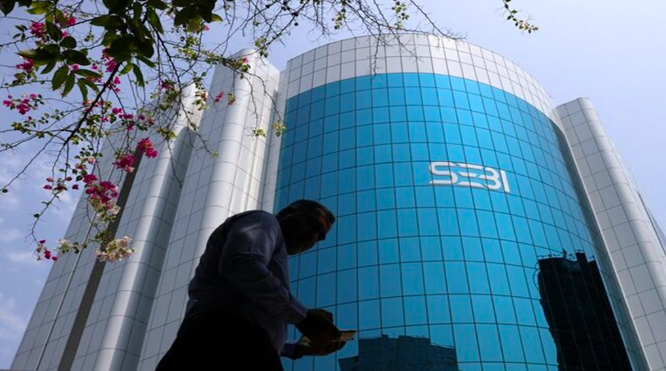SEBI can also impound the monies made as wrongful gains, and has at times held the top management responsible for not having checks in place to avoid front-running within the fund house or brokerage firms.
The markets regulator recently barred stockbroker Ketan Parekh and two others from the securities markets for alleged involvement in a front-running scheme. Akshata Gorde explains how these illegal activities erode investor confidence & what SEBI is doing to deter such malpractices
What is front-running and how does it work?
Front-running is a fraudulent practice where traders or brokers build positions based on non-public information about large, impending trades by their clients to make profits once the purchase or sale happens. For example, if a mutual fund plans to buy a substantial number of shares of a particular stock, front-runners exploit this knowledge by purchasing the stock beforehand. When the fund executes its buy order, the stock’s price rises due to increased demand, allowing the front-runner to sell its holdings at a profit. Usually, brokers or fund managers who execute the trades on behalf of funds are in possession of such information and can leak it to others. If one buys shares of a company worth Rs 1 crore knowing that a fund house will be buying shares worth Rs 100 crore, he stands to make Rs 2 lakh even if the stock moves up only 2%.
Front-running is similar to insider trading with the only difference being that in the former it is the broker working for the client’s brokerage firm rather than an employee of the client who is exploiting the non-public information for his gains.
Why is this practice illegal?
Front-running exploits the information asymmetry in the markets, with insiders benefiting at the expense of regular investors. This distorts market pricing mechanisms, making prices reflect manipulated activity rather than genuine supply and demand dynamics. It breaches fiduciary duties and undermines the fairness and transparency essential for functioning of financial markets. The practice harms other market participants by inflating stock prices before they can execute their trades or by suppressing prices in the case of sell orders. Retail investors who follow market trends without insider knowledge may end up buying stocks at inflated prices or selling at deflated rates. Additionally, the practice damages trust in brokers and institutions, leading to reduced investor confidence. Front-running comes within the ambit of fraudulent and unfair trade practices identified by the Securities and Exchange Board of India (SEBI).
What is the penalty for this?
According to Section 15HA of the SEBI Act, individuals or entities involved in front-running can face monetary penalties of up to Rs 25 crore or three times the amount of profits made or losses avoided through the practice, whichever is higher. Violations of the SEBI Act and SEBI’s Prohibition of Fraudulent and Unfair Trade Practices (PFUTP) Regulations can lead to the regulator imposing restrictions on trading for the individuals or entities involved in front-running. These bans can range from a few years to permanent prohibition from participating in the securities market. Criminal proceedings could also be initiated in case of serious offenses, with up to 10 years of imprisonment and/ or Rs 25 crore fine. SEBI can also impound the monies made as wrongful gains, and has at times held the top management responsible for not having checks in place to avoid front-running within the fund house or brokerage firms.
How SEBI detects such instances
SEBI detects front-running through its surveillance and enforcement mechanisms, using data analytics and artificial intelligence to detect unusual trading patterns. Warning signs include unexplained price surges or drops before significant transactions, unusually high trade volumes, or discrepancies in brokerage statements. As most trades happen electronically, this is not difficult but in case mule accounts are used, emails, phone calls and WhatsApp messages have to be tracked to join the dots. SEBI has also been addressing compliance failures through orders, mandating regular audits and tightening norms for brokers and asset management companies (AMCs). Last year, the SEBI (Mutual Funds) Regulations, 1996 was amended to enhance the existing regulatory framework for AMCs for facilitating identification and deterrence of potential market abuse, including front-running.
Recent instances of front-running
The most recent instance is that involving former stockbroker Ketan Parekh, where he allegedly collaborated with Rohit Salgaocar, a Singapore-based trader, for exploiting insider information related to trades by a major US-based fund house for illegal profits of Rs 65.77 crore. In December 2024, SEBI barred Sachin Bakul Dagli, an equity dealer at PNB MetLife India Insurance Company, along with eight associates for a front-running operation, for allegedly leveraging insider information to secure illicit profits of over Rs 21 crore. In September 2024, the Enforcement Directorate had searched Axis Mutual Fund’s offices in Mumbai and Kolkata, in relation to a 2023 SEBI order. SEBI had searched Quant Mutual Fund’s premises in June 2024 for alleged front-running but no order has been passed yet.
As against only seven cases of front-running taken up for investigation by SEBI in 2021-22, 24 cases were taken up in 2022-23. In 2023-24, SEBI took up 83 cases for investigation, indicating that prevention of front-running is a key focus area for the regulator, and perhaps also, a rising tendency among brokers to manipulate the markets.
Source: www.financialexpress.com


